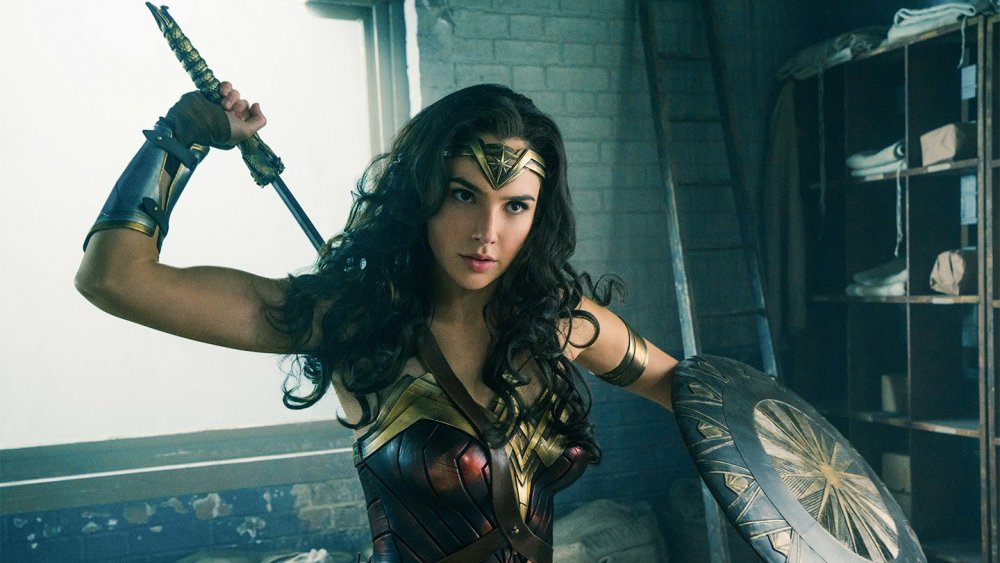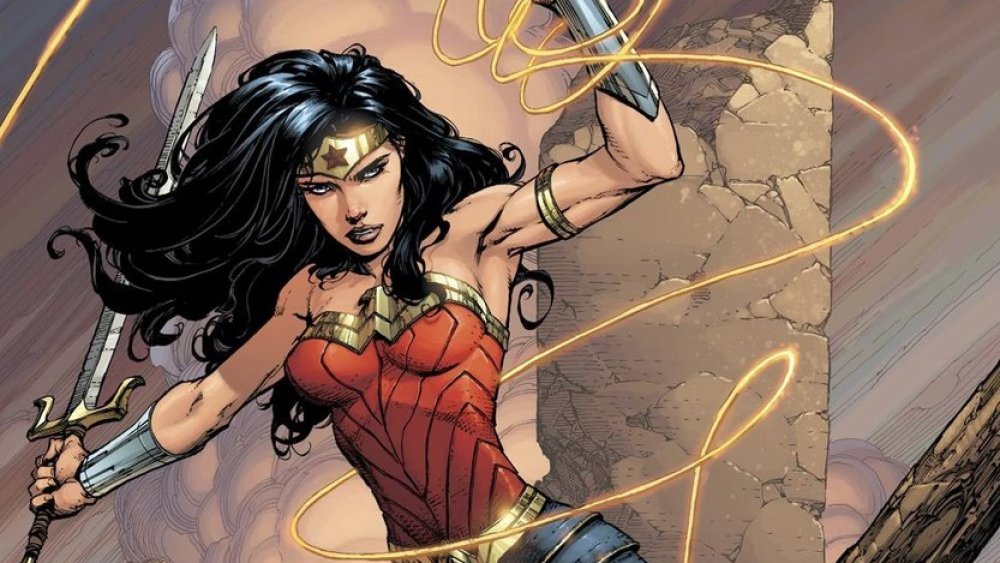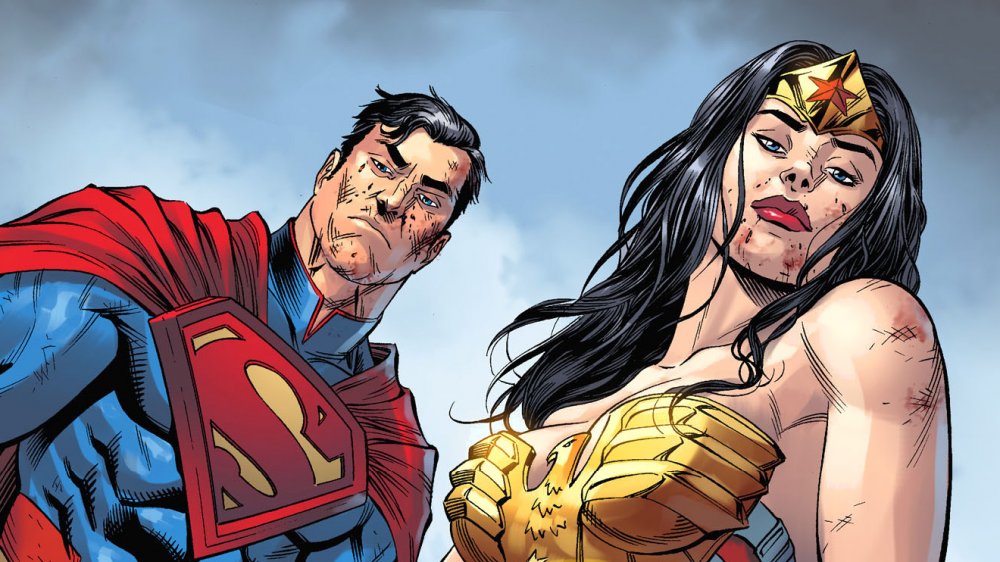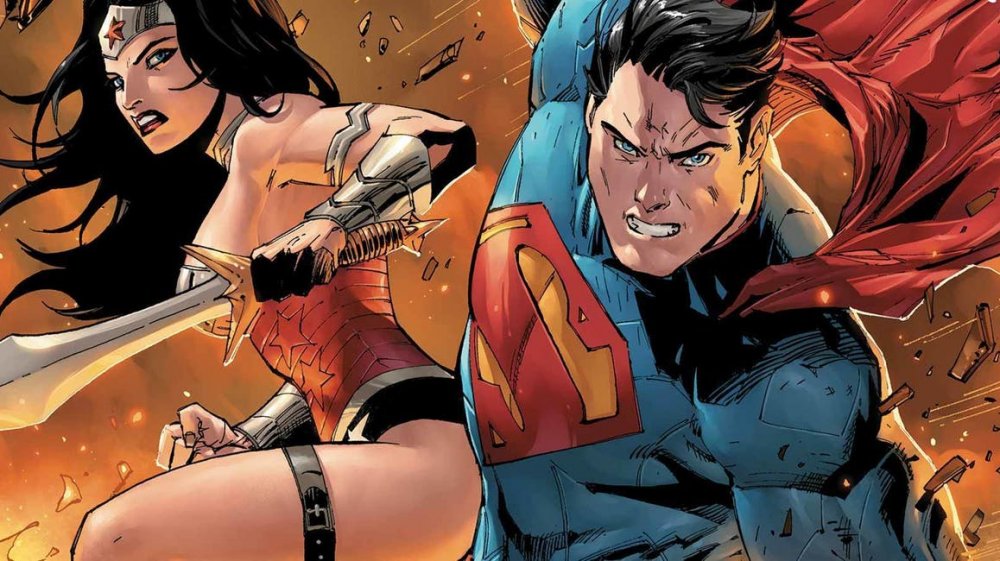Is Wonder Woman Powerful Enough To Beat Superman?
Diana of Themyscira is one of the oldest and most powerful characters in the classic DC Comics pantheon, and she has surfaced from her eternal popularity amongst comic fans to mainstream prominence in recent years thanks to her appearances in several DC Extended Universe movies. It's common practice amongst all comics fans under any banner to debate the ability of X character against Y, and Wonder Woman's powers have remained the subject of heated conversations for many years. In particular, the comparison between Wonder Woman and her fellow DC Comics vigilante Superman is one that has continued in perpetuity at a more fevered pitch.
Superman is the first and ultimate caped character, right? He's described as invincible, has an ability list a mile long, and is often turned on his head in a trope of terrifying, unstoppable power when he loses (or is made to lose) his moral compass. That, on its face, implies that no one can match him. But what about Wonder Woman? Can she match — even surpass – the Man of Steel? Let's discuss.
She's got the stuff to beat Superman
It's preternaturally understood by most people via the osmosis of pop culture that Superman is an uber-powerful alien from the planet Krypton. He's unlike anything of our planet and galaxy. However, Diana was literally molded from the gifts of Grecian gods — and depending on the comic version of her you choose, she's actually the daughter of Zeus. For all Clark Kent is, he can't put "demi-god" on the list.
Clark's got the more sci-fi background compared to Diana's mythological one, but from a wide angle, there's plenty of room on a base intellectual level to consider them as equals. Recall, too, that Superman's ability is defined by his location — the Milky Way galaxy, with its yellow sun granting him his superior power compared to what he'd be like back home on Krypton. Thus, we must consider his exposure to kryptonite as a limiting factor in any theoretical situation where he's battling Wonder Woman. In some cases for Diana, her iconic bracelets are actually a limiting force on her as well, and when they're removed, her power grows by magnitudes.
Additionally, Diana is a warrior of skill, trained for the purposes of defending the weak and protecting her homeland — whereas Clark isn't formally trained by whatever Kryptonian military standard that once existed. Jonathan Kent probably doesn't have a Judo belt squirreled away somewhere in the farmhouse attic, either. That's a big leg-up, technically speaking — the learned ability to strategize within combat can be the true difference between success and failure, no matter any individual's strength. Everyone has weaknesses, even Superman, and entering into any tête-à-tête with him requires a plan and the ability to adapt in order to level the playing field. Diana has exactly that.
Wonder Woman has bested Superman before
Comics' bread and butter are massive one-on-one bouts of fisticuffs. Usually, that's hero versus villain, but it's always something special when it's hero-friend versus hero-friend in some extra-dramatic circumstances. Diana and Clark specifically have had a few. Most times, Diana brings him to a draw, or uses her natural inclinations toward peaceful deescalation with the Lasso of Truth to end a confrontation (usually because Clark has been mind-controlled like a damsel in distress). However, she has come out on top before.
During the Injustice: Year Four run in which Superman is a tyrannical dictator of Earth, Diana and Clark meet as enemies in contest to become the champion of the Greek gods. Despite the fact Diana is aligned with the insurgency that seeks to overpower this alternate-universe Superman bent on revenge on control, he's hesitant to fight her with all his strength because he does still care about her. Wonder Woman exploits that to her advantage — breaking his arm and gouging his eyes to ultimately win the fight and gain the favor of the gods. Bruce Wayne even flat-out tells Clark in a flashback that if it ever really came down to it, Diana would rip him to pieces because she's the trained warrior — and that's precisely what happened.
Another good example of Diana's capacity to defeat Superman — a task that the comics tacitly admit only she can accomplish, even when it's simply to corral him — is in the team-up annual Superman/Wonder Woman #1. Clark is infected with a virus that's turning him into Doomsday, making him an uncontrollable monster that will overrun Earth. A haze of kryptonite on Earth weakens Clark, allowing Doomsday to continue mutating. Diana fights him as he loses control of himself and, assisted via possession by the God of War, overpowers him. Seconds from Wonder Wonder delivering what is presumably the death strike, the kryptonite is destroyed and Clark remembers himself. He then wills the virus (because this is comics, he can do that) into submission and returns to normal. It has a happy ending, but Diana had things well in-hand.
The result of debating Wonder Woman and Superman's powers
The first rule of comics is there are no rules. Their reality is intended to be elastic to permit more possibilities within a given canon or to depart into an alternative one. Assigning relative superiority to something as arbitrary as superpower defeats the point of what comics are usually intended to mean: expressions of humanity with superhuman stakes attached.
Is Superman, on Earth and in full control of himself, more powerful than Diana on a usual day ending in Y? Yes, he is. Diana has championed over him in a few cases nonetheless. But the dynamics of their relationship across time and the wild pseudoscience of the physics they exist in are supposed to muddle that continuum. When placed in these scenarios, they question killing each other because they are friends and because one understands the other may not be acting as themselves — in short, because of their empathetic capacities. Pitting traditional friends against each other isn't necessarily meant to settle who's better or more powerful, but is more so intended as a frame for a sad tragedy with the characters (and their dynamic) that you love. The mechanics and methodology are almost irrelevant and can be made to fit the emotional underpinning that any given scenario is meant to evoke. Imposition of an objective and predictable stratification of superheroes' abilities is antithetical to its format.
The TL;DR is that Wonder Woman can beat Superman, and Superman can also beat Wonder Woman. Don't think too much about it.



